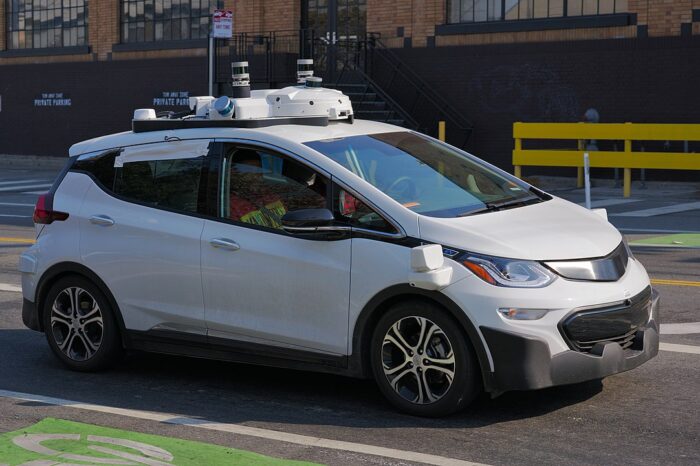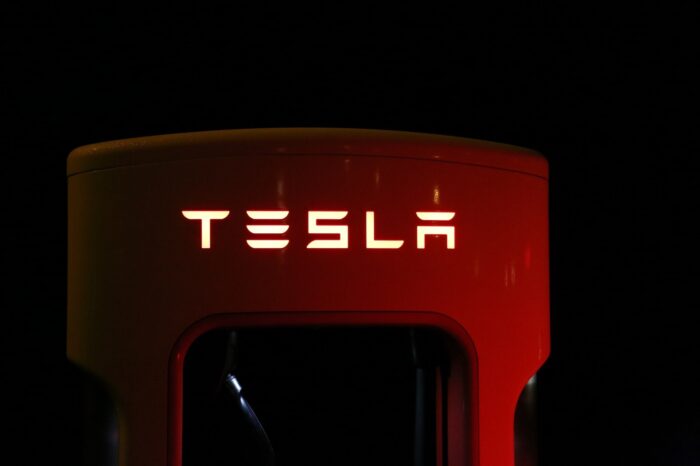Was this a good week or a bad week for Elon Musk? The jury is still out. The Tesla CEO took the stand in a trial over a tweet he sent in 2018, hoping to convince the jury that his social media antics don’t affect his company’s stock price. Meanwhile, the trial lawyers and government investigators accusing Tesla of misleading customers about its self-driving capabilities appear to have discovered another piece of evidence that implicates Musk directly.
Shell is the latest Big Oil company to get involved in EV charging, Tanzania surrenders to Uber, Gogoro plows billions into battery-swapping for mopeds in India, Geely wants to turn the maker of London’s black taxis into an EV powerhouse, and let us introduce you to … Kate, a French automaker bucking the trend that bigger is better.
![]()
More Misadventures in Muskland: Internal Tesla emails obtained by Bloomberg reveal Elon Musk’s involvement in a 2016 promotional video for Autopilot. Musk suggested in emails that the point of the video would be to show what Tesla vehicles would eventually be able to do, but ultimately the video and Musk’s own tweets used the present tense to describe the vehicle as self-driving.
Meanwhile, the Tesla CEO takes the stand in a trial over a 2018 tweet in which he claimed to have secured funding to take the company private. Musk defends himself against claims the tweet caused the stock to jump but then later plummet when he didn’t make good on his stated plans, which many doubt were ever sincere. Musk says he doesn’t believe his activity on the platform he now owns can be blamed for the behavior of investors.
Shell goes greener: Shell USA Inc., a subsidiary of the oil giant, pays $169 million for Volta, an EV charging operator that went public via SPAC in 2021. Other large oil companies that have recently bought charging operators include BP and Total.
Tanzania sides with Uber over drivers: In April, Uber and Bolt, the Estonian ride-hailing service that has become a major player in Africa, cut back operations in Tanzania in response to a regulation requiring them to give drivers a minimum 25% cut of each fare. The government has reversed course and reduced the minimum commission to 15%, prompting the ride-hailing companies to resume operations.
Battery-swapping comes to India: Gogoro, the Taiwanese company that operates battery-swapping stations for two-wheel vehicles, teams up with Belrise Industries, an Indian automotive systems manufacturer, to build a $2.5 billion battery charging and swapping network in the Indian state of Maharashtra. The emergence of electric mopeds has the potential to significantly reduce emissions in India, where a large portion of the population relies on two-wheel vehicles to get around.
Geely sees big opportunity in London’s black taxis: The Chinese automaker has owned the maker of London’s iconic black taxis for a decade, but now it is positioning the London Electric Vehicle Company to become a high volume commercial and passenger EV maker. So far it has only invested 500 million pounds into its subsidiary but it is likely to spend much more to make it into a mainstream OEM.
Meet Kate: Kate is a new French automaker focused on making tiny, minimalist electric cars. In contrast to other tiny cars that are marketed for urban mobility, Kate is targeting suburbanites and even residents of rural areas. The company’s argument is that ample leg room, sophisticated entertainment systems and high speeds simply aren’t necessary for the vast majority of car trips.
…maybe Kate should meet Uber: CEO Dara Khosrowshahi urges automakers to sacrifice speed and even a wheel or two for the sake of affordability. Uber and Lyft worry they won’t be able to meet fleet electrification mandates (in California and elsewhere) unless the cost of EVs come down. We agree.
![]()
Australia ponders battery fires: ABC News in Australia looks at the dramatic increase in fires linked to batteries in electric cars, bikes and scooters and tries to figure out how to minimize their frequency and destruction. The solution appears to be a combination of regulation aimed at preventing shoddy products from coming to market, education for consumers about safe charging and training for firefighters about how to deal with battery fires.
How EVs can save the grid: There’s been much hand-wringing about how EVs may doom the electric grid, but new research reported by Wired argues that the opposite may be true: EVs can be what props up America’s outdated electric infrastructure.
The plight of New York City ride-hail drivers: The New York Times delves into the struggles of Uber and Lyft drivers in the Big Apple, who appear to now be making less money on average than their rivals driving traditional taxi cabs.
The red state anti-EV backlash: While large Democratic states like New York and California are adopting policies aimed at phasing out gas-powered cars, some red states are pushing in the opposite direction. In Wyoming, a group of Republican legislators have pushed to ban EVs by 2035. In the Verge, Andrew Hawkins explores how EVs have become yet another battle in the culture war guiding America’s politics. In this context, perhaps Elon Musk’s recent embrace of conservative politics makes good business sense.
Enjoy the Week in Review? Get it delivered directly to your inbox by signing up for the CoMotion>>NEWS newsletter.






